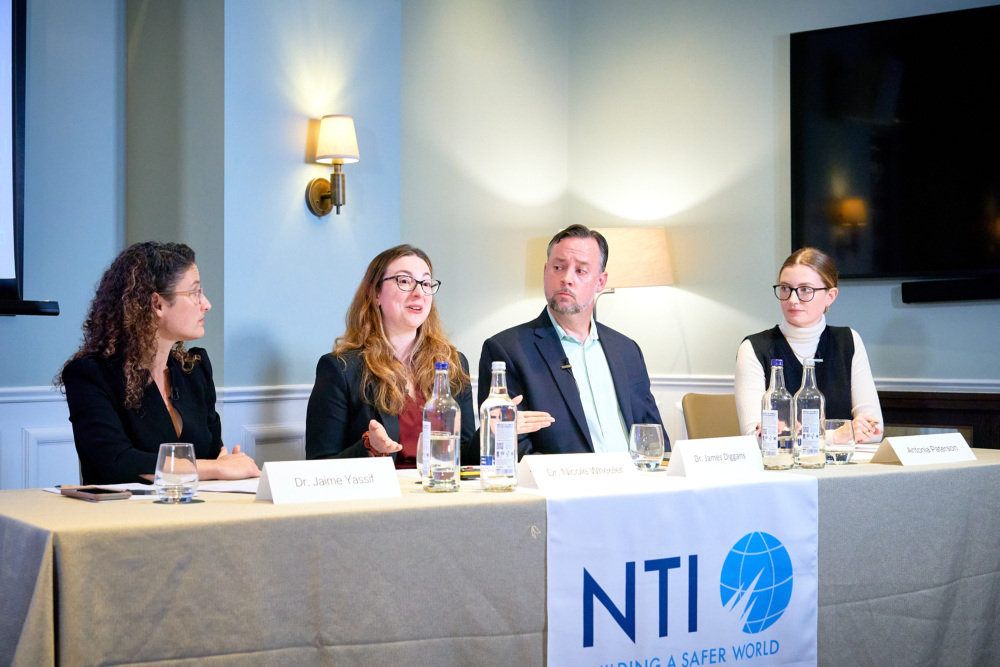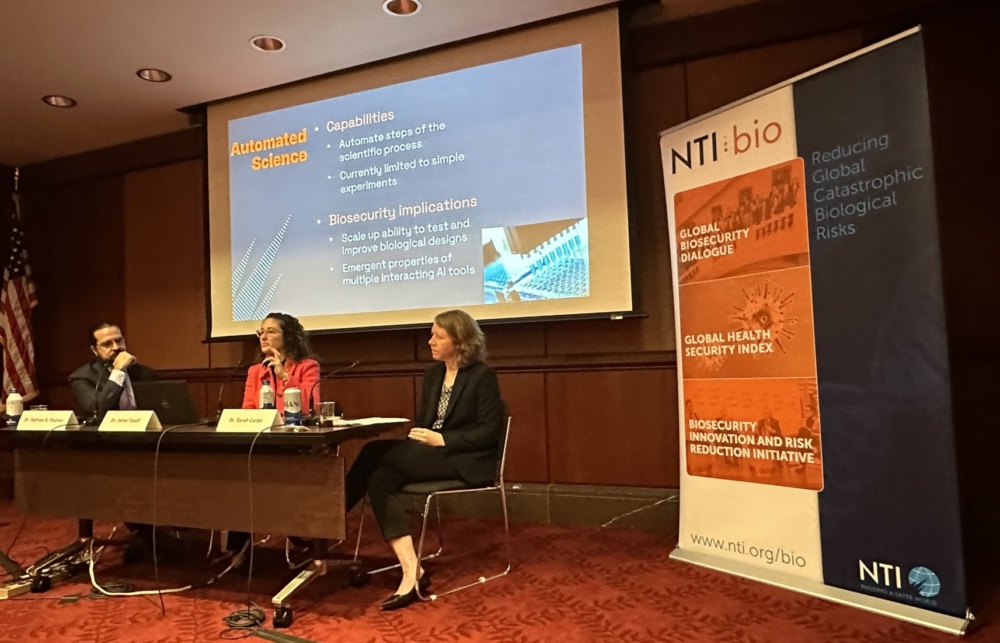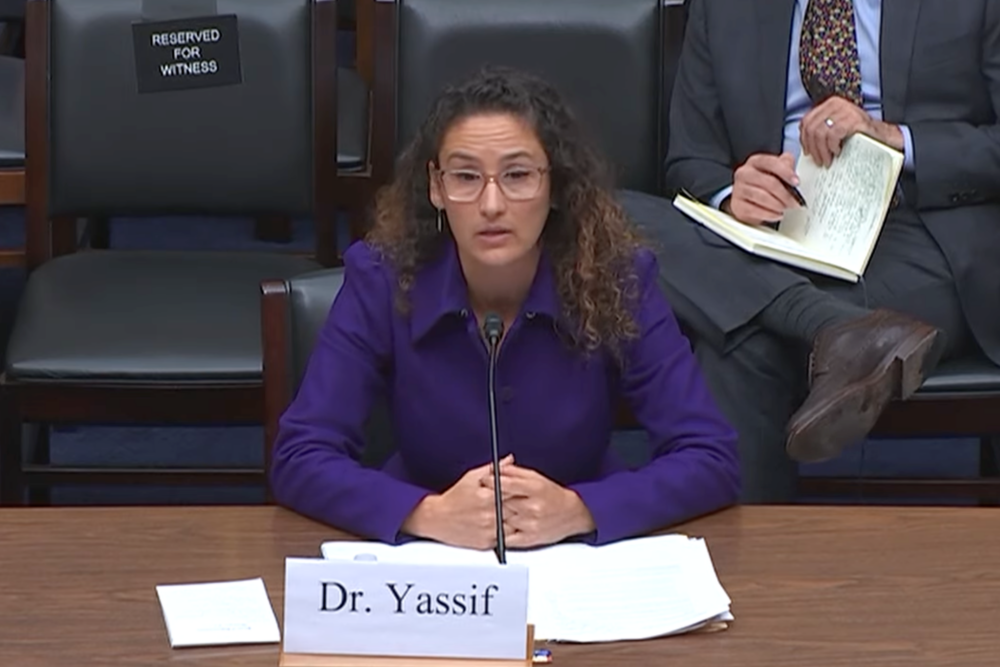While significant advances in artificial intelligence (AI) offer tremendous benefits for modern bioscience and bioengineering, AI-bio capabilities can also be accidentally or deliberately misused to cause significant harm. On November 8, NTI | bio hosted a lunchtime event on Capitol Hill to discuss how Congress and other decision makers can take action to mitigate these emerging risks. The event followed the release of an NTI report, “The Convergence of Artificial Intelligence and the Life Sciences,” on October 30.
The Congressional event featured report authors Dr. Sarah Carter, principal at Science Policy Consulting, LLC, and Dr. Jaime Yassif, Vice President of NTI | bio. Drs. Carter and Yassif discussed the potential and risks posed by AI in the life sciences and discussed policy implications and actionable next steps. NTI | bio Senior Director Dr. Nathan A. Paxton moderated the discussion.
Dr. Yassif outlined three major types of AI models and their implications for biosecurity. In particular, she discussed large language models (LLMs), biological design (bio-design) tools, and automated science. LLMs can help non-experts get up to speed quickly and could lower barriers to misusing biology, but they have limited ability to generate novel insights and are prone to “hallucinate” false information. Bio-design tools are trained on biological data, such as DNA or protein sequences, and are generally used by specialists to design biological molecules or systems. They could potentially enable the design of pathogens that are more dangerous than naturally occurring organisms. Automated science uses AI to automate steps of the scientific process, and is currently limited to simple experiments; it could potentially be scaled up to test and improve biological designs using multiple AI tools.
Dr. Carter discussed the need for different approaches to oversight for different AI models. Biodesign tools, for instance, could be used for beneficial but also risky or malicious activities. The same tools used to design vaccine candidates might also be used to find pathogen variants that escape the vaccine. Carter also discussed recommendations that came out of the AI-Bio report, including: establishing an international “AI-Bio Forum” to develop AI model guardrails; developing a new, more agile approach to national AI-bio governance; and pursuing an ambitious research agenda to explore additional AI-bio guardrail options.





